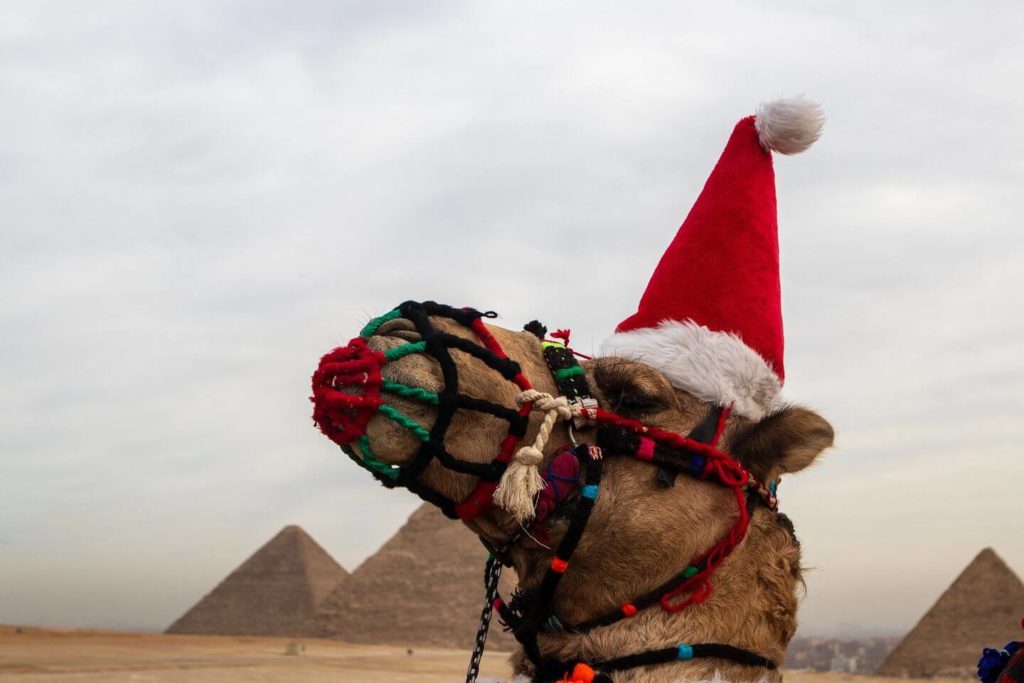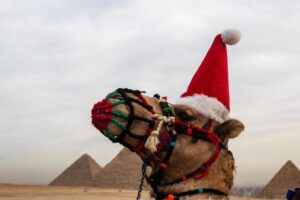
Overview of Christmas in Egypt
Christmas in Egypt is observed through a unique lens, reflecting the country’s predominantly Muslim population while celebrating its rich Christian heritage. The historical context of Christmas in Egypt dates back to early Christianity, which found a robust following in the region. As home to one of the oldest Christian communities, the Coptic Orthodox Church plays a vital role in the observance of Christmas traditions, particularly amid a mainly Islamic cultural landscape.
The demographics reveal that the Coptic Orthodox community constitutes approximately 10% of Egypt’s population. This group not only maintains their distinct religious identity but also enriches the cultural tapestry of the country. Christmas is typically celebrated on January 7th, in accordance with the Julian calendar, a practice that diverges from the Gregorian calendar followed by the majority of Christians worldwide. This fact is emblematic of how Christmas traditions are shaped by historical contexts and religious sentiments in Egypt.
The celebrations encompass various customs, such as attending midnight mass, where congregations gather in church to commemorate the birth of Jesus Christ. Additionally, Coptic families prepare special meals for the occasion, breaking a 43-day fast that precedes Christmas. Dishes may include traditional Egyptian fare, showcasing a blend of both Christian and Islamic culinary influences. While public festive displays may be less prominent compared to Western countries, the essence of Christmas is cherished privately among families and communities.
In a broader context, Christmas is not only a religious festival for Copts; it also represents cultural diversity within Egypt. The interplay of Christian and Islamic traditions illustrates a harmonious coexistence that characterizes Egyptian society. This unique celebration serves to highlight the interconnectedness of different faiths, showcasing how Christmas remains a critical aspect of Egypt’s cultural identity.
Coptic Christmas Traditions and Customs
Coptic Christmas, celebrated on January 7th, is a time of great significance for Egypt’s Coptic Christian community. The festive season is marked by unique traditions and customs that highlight the rich cultural heritage of Copts within a predominantly Muslim society. The preparations for Coptic Christmas commence with a 43-day fasting period known as the Advent Fast, where believers abstain from certain foods, particularly meat and dairy. This fasting period serves as a time for spiritual reflection and penitence, allowing individuals and families to prepare for the joyful celebrations that follow.
As Christmas approaches, Copts eagerly anticipate attending church services that play a central role in the holiday celebrations. On Christmas Eve, many families participate in the late-night mass, which is characterized by solemn hymns, prayers, and the lighting of candles. The atmosphere is profoundly spiritual, bringing together community members to commemorate the birth of Christ. The mass is followed by a celebratory meal, often shared with family and friends, marking the end of the fasting period and the beginning of festive gatherings.
Food is an essential part of Coptic Christmas traditions, with families preparing an array of special dishes. One popular dish is “Fattah,” made from rice, bread, and meat, often served alongside a rich tomato sauce. Additionally, sweets such as “Kahk,” a traditional cookie filled with nuts and spices, are commonly enjoyed during this time. The preparation and sharing of these dishes emphasize the importance of family and togetherness in Coptic culture.
Celebrating Christmas in a Muslim-majority country, Copts embrace their traditions with resilience and joy, creating a vibrant expression of their faith. These customs not only strengthen communal bonds but also showcase the coexistence of cultures in Egypt. Through church services, family gatherings, and festive meals, Coptic Christians cherish their rich heritage, offering a poignant glimpse into the unique ways they celebrate Christmas amidst a diverse societal backdrop.

Social and Cultural Coexistence
The Christmas season in Egypt embodies a unique testament to the coexistence of various faiths and cultures, primarily between Muslims and Christians. This harmony reflects the broader social fabric of Egyptian society, where both communities often engage in shared experiences that transcend religious divides. While Christmas is primarily a Christian holiday, it resonates deeply within the collective consciousness of the Egyptian populace, contributing to a sense of unity and mutual respect.
During the festive season, it is not uncommon for Muslim friends and neighbors to extend warm greetings to their Christian counterparts. Phrases such as “Merry Christmas” are frequently exchanged, demonstrating a spirit of camaraderie that permeates the air. This mutual acknowledgment fosters an atmosphere where religious boundaries seem less pronounced, emphasizing the cultural significance of Christmas celebrations in Egypt.
<pmoreover, acceptance.<pas activities,=”” affiliation.=”” among=”” and=”” appreciation.
Challenges and Changes in Modern Celebrations
As Egypt continues to navigate its socio-political landscape, the celebration of Christmas faces several challenges and changes. In a predominantly Muslim nation, where Islamic traditions prevail, the Christian community, primarily Coptic Christians, often grapples with the task of celebrating their significant holiday amid security concerns. Heightened vigilance, particularly around public gatherings and places of worship, has influenced how Christmas festivities are organized, leading to increased police presence and security measures. These precautions, while intended to ensure safety, can sometimes diminish the celebratory atmosphere, making the events feel more subdued.
Moreover, societal attitudes toward religious diversity have been shifting over the years. With instances of sectarian tensions surfacing, many Christians face challenges in expressing their traditions openly. However, efforts to promote tolerance and understanding have fostered a gradual acceptance of Christmas celebrations within the broader Egyptian society. Government initiatives and community efforts aimed at highlighting shared values and coexistence help mitigate the challenges associated with religious events in a multi-faith context.
Additionally, globalization and the rise of social media have significantly transformed how Christmas is celebrated in Egypt. The influence of modern technology facilitates the sharing of various cultural practices and traditions across borders, enriching local celebrations. Egyptians, regardless of their religious affiliation, increasingly adopt contemporary customs, such as the decoration of Christmas trees and the exchange of gifts, inspired by global trends. This cross-pollination of ideas helps bridge cultural gaps and cultivates a more inclusive environment for festive occasions, allowing diverse communities to come together and share in the joy of the season.


